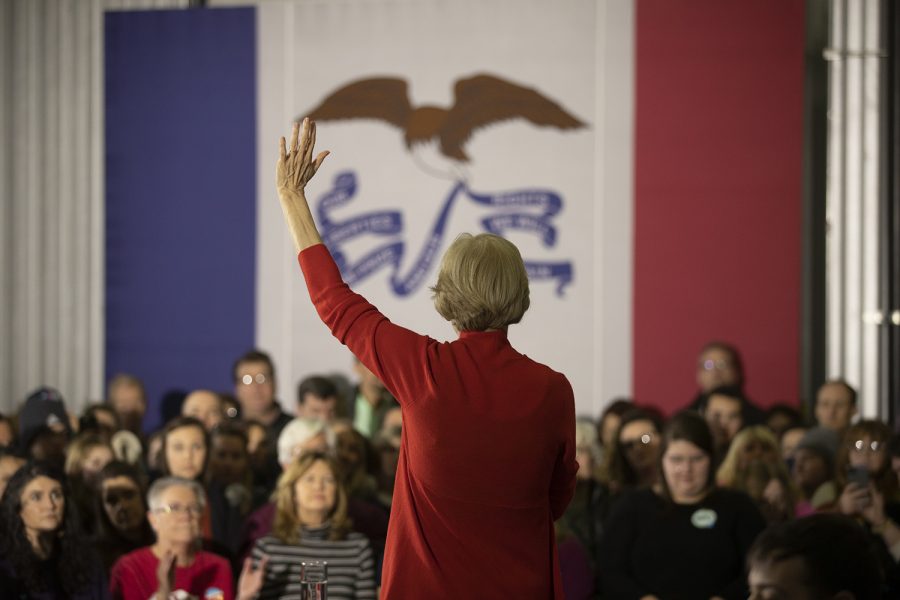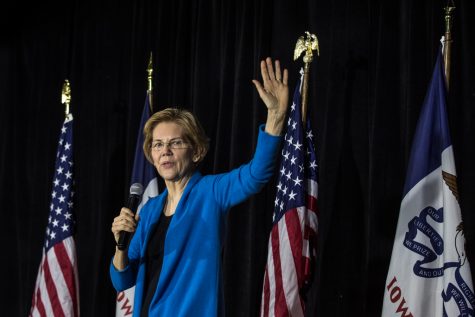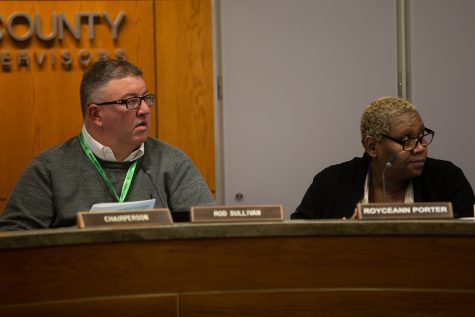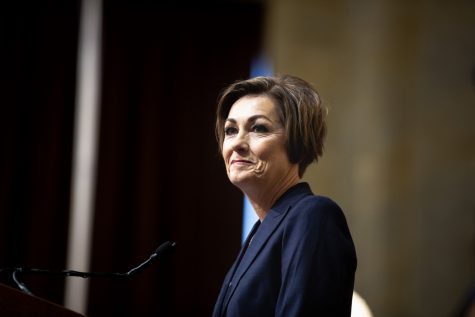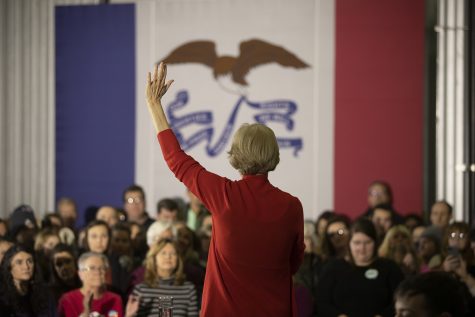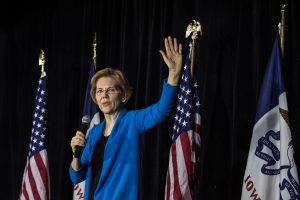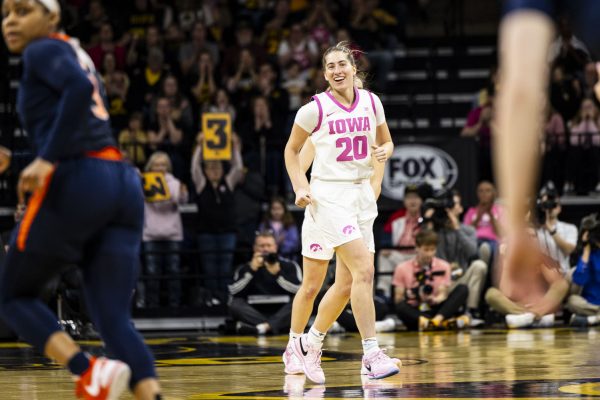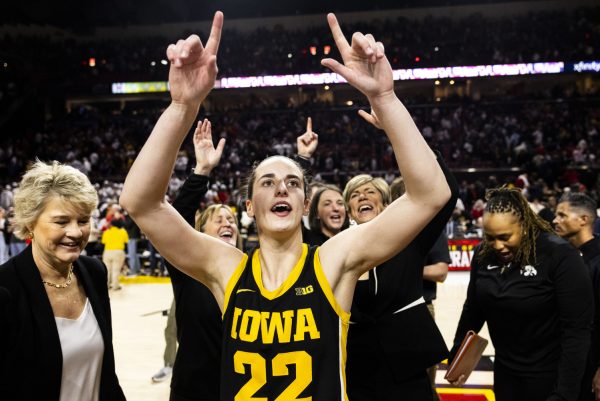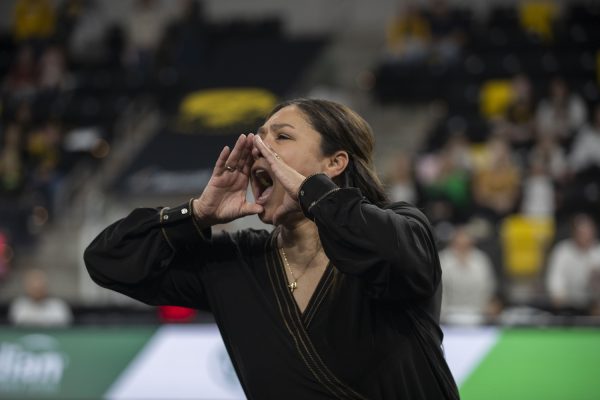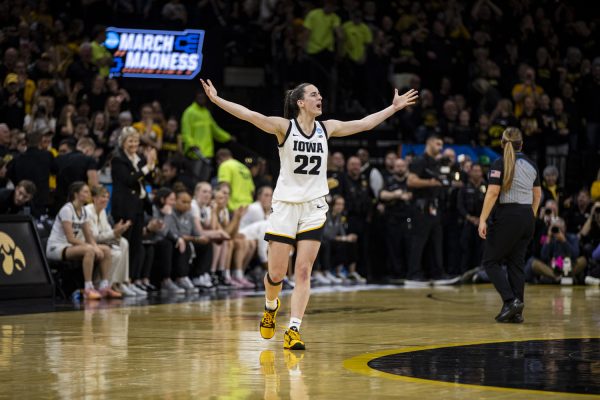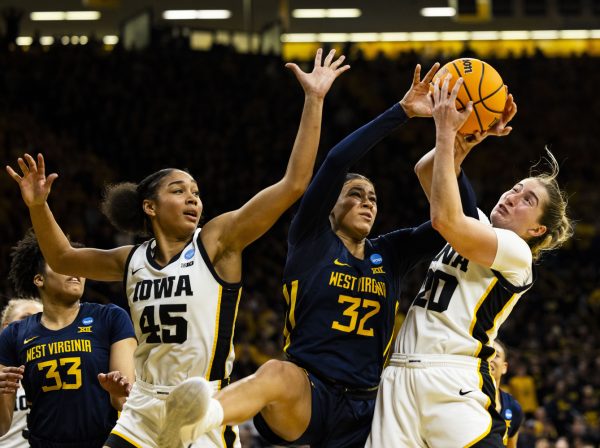Elizabeth Warren ends White House bid
Elizabeth Warren is ending her presidential campaign after failing to gain traction in early voting and Super Tuesday states. She has not announced any plans to endorse a candidate.
Sen. Elizabeth Warren, D-Mass., speaks to an audience at NewBo Market in Cedar Rapids on Sunday, January 26, 2020. Warren encouraged attendees to support her nomination at the upcoming Iowa caucuses.
March 5, 2020
Massachusets Senator Elizabeth Warren is ending her presidential campaign after failing to place first in any of the 14 Super Tuesday states.
Warren, who was once a high-polling candidate in the race, finished in third place in the Iowa caucuses, only winning the most delegates in Johnson County and tying with Buttigieg in Iowa County. Warren failed to crack the top three places in New Hampshire, Nevada, and South Carolina. On Super Tuesday Warren finished in third in her home state of Massachusetts.
Warren campaigned heavily on her 2-cent wealth tax, free universal child care and college, a broad student-loan debt cancelation program, and Medicare for All.
“We have shown that it is possible to build a grassroots movement that is accountable to supporters and activists and not to wealthy donors – and to do it fast enough for a first-time candidate to build a viable campaign,” Warren said to her campaign staff in a press release.
Our work continues, the fight goes on, and big dreams never die. From the bottom of my heart, thank you. https://t.co/28kyKe777L
— Elizabeth Warren (@ewarren) March 5, 2020
Warren’s campaign funds came mostly from contributions under $200, which compromised 52 percent of her fundraising, totaling more than $48 million, according to Open Secrets. Large, individual contributions totaled more than $33 million and “other” totaled about $10 million.
After Super Tuesday, many supporters for Vermont Sen. Bernie Sanders took to Twitter criticizing Warren for remaining in the race instead of stepping aside to endorse her liberal counterpart, which many said could have helped Sanders’ chances in beating Biden in some primary states.
Warren had gained 75 national delegates by the time she ended her campaign. Her departure comes one day after former New York Mayor Michael Bloomberg dropped out of the race and endorsed former Vice President Joe Biden.
Former South Bend Indiana Mayor Pete Buttigeig and Minnesota Sen. Amy Klobuchar have also coalesced behind Biden. Warren has not announced any plans to endorse a candidate at this time.
Biden and Sanders are the two major contenders left in the race for the Democratic nomination. Hawaii Rep. Tulsi Gabbard remains in the race, though polling averages showed her support at 1.3 percent nationally.



